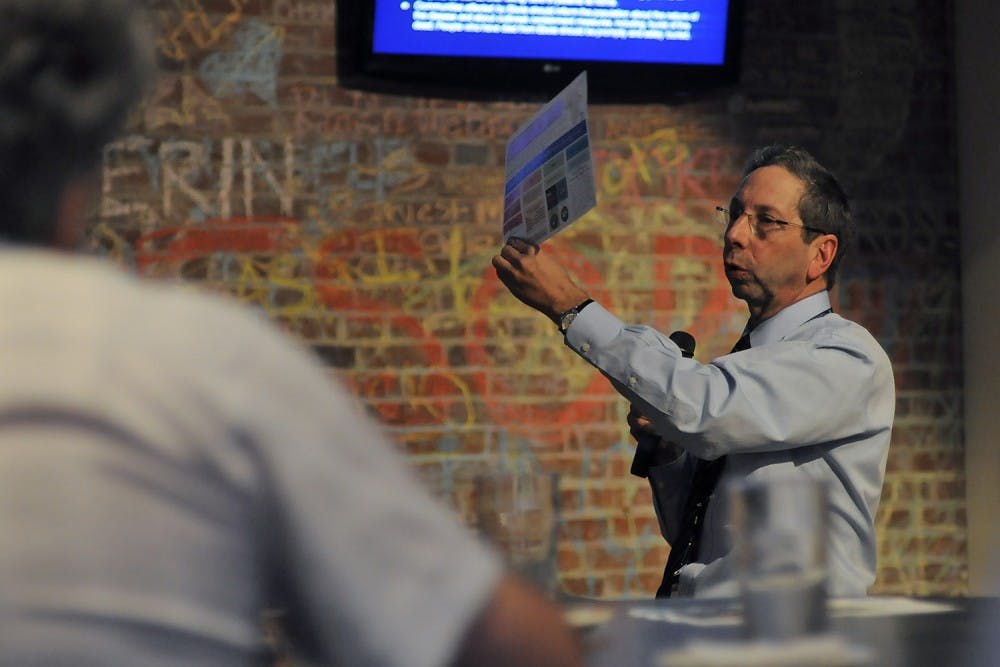The meeting featured a discussion on infectious diseases led by David Weber, a professor of epidemiology at UNC’s Gillings School of Global Public Health.
The first Wednesday of every month, the North Carolina Science Festival and the Morehead Planetarium and Science Center hold the Carolina Science Cafe, an informal discussion about current scientific events.
Some expressed concern over the U.S.’s preparedness for the Ebola virus.
“Due to travel, Ebola has become a global concern,” Weber said. “Whenever these cases appear, nowhere in the world is really safe. It is going to be a major disaster in Africa, and possibly other areas, without a strong healthcare infrastructure, but it is not a threat to the U.S.”
Despite the global reach of Ebola, Weber said the healthcare infrastructure in the U.S. would contain and isolate the outbreak. He said infectious diseases are most virulent in population centers with limited access to healthcare, which is why the outbreak in West Africa has become so severe.
“I understand the impact on the U.S. is likely small, but I also recognize it is a disaster for the countries it is taking root in, and there’s not much we can do at this point,” said computer science professor Ketan Mayer-Patel, who said he regularly attends the meetings. “Ebola is extremely interesting, and it’s great they have these events to showcase faculty work.”
The group also enjoyed refreshments provided by the scientific research society Sigma Xi and took part in a trivia competition for two tickets to the Morehead Planetarium.
Weber provided an overview of historic infectious disease outbreaks, assessed the containment methods used and predicted the likelihood of future outbreaks.



